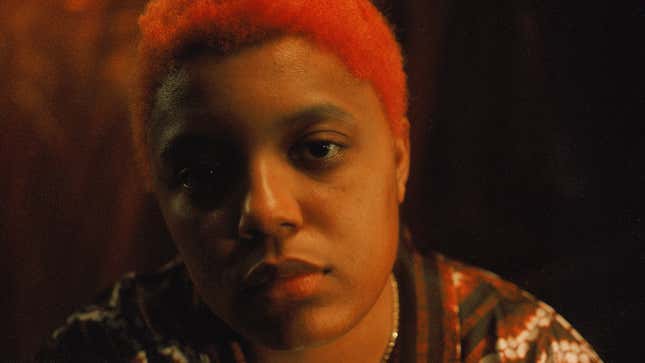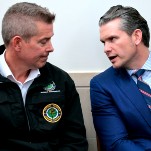Loraine James’ Vulnerability Surprised Her on New Album ‘Gentle Confrontation’
The London-based producer/singer talked to Jezebel about futuristic R&B influences, surviving off gigs, and whether her music qualifies as queer.
EntertainmentMusic

There appears to be a contradiction regarding how British electronic producer/singer Loraine James views her work. She’s extremely prolific and works fast—sometimes spending just 30 minutes on a track. She trusts her gut to determine when a song is done and often doesn’t like the results of her more belabored productions. “The feeling is lost, even if the production really sounds better,” she told Jezebel recently regarding songs she’s picked back up to tweak.
And though this bespeaks a certain confidence, she also had a tendency in the 30 or so minutes in which we talked to downplay her work. She practically apologized for making the sequel to “Glitch Bitch” from 2019’s For You and I that appears on her new album, Gentle Confrontation (out Friday). She denigrated her beat boxing that appears on Gentle Confrontation’s collaboration with alt-neo-soul artist KeiyaA, “Let U Go.” She described her beats as being “not as full” sounding as other producers’. When she discussed songs of hers she liked—like Confrontation single “2003,” which is about the death of her father and the uncertainty in her it created—she did so with qualification: “It’s a song that I like, if that’s the right word to say: ‘like.’”
James’ music, on the other hand, is rarely anything less than assertive. Her stew of sounds sometimes contains recognizable styles like techno, jungle, footwork, and IDM, all filtered through her typically jagged aesthetic. (Some of the beats on Gentle Confrontation have a scratchy texture that reminds me of those on Björk’s Homogenic.) There are some overt references to emo and electronic-indie that James listened to in her youth (like American Football and Dntel), and Gentle Confrontation also takes on a futuristic R&B feel in several key tracks (like the collaboration with KeiyaA and the single “Déjà Vu” with RiTchie). It all adds up to one of the most consistently surprising, challenging, and rewarding albums of the year, in my opinion, and that’s why I wanted to talk to its creator. An edited and condensed transcript of our conversation is below.
JEZEBEL: When you start working on an album, do you have a concept in mind or is the finished product ultimately reflective of what you’ve been working on?
LORAINE JAMES: I never approach an album with an idea. I always just sort of wake up and decide, “Everything from this day for the next few months will be [used] towards an album.” I never know what it’s about until I feel like I’ve done enough tracks, and then that’s when I start naming them, and then all the pieces start to fit together, which is fun. It’s fun and interesting to see it sort of reveal itself to me.
How did Gentle Confrontation show itself thematically as you were making it?I didn’t expect to be as vulnerable on it. I didn’t know what to expect. It was just nice putting words down on paper. I usually keep a lot of thoughts bottled in, and it was nice to have songs that had more words to them than I usually write. It made me understand things about myself a bit better. I ended up feeling a bit lighter after I finished the album.
In “2003,” you sing about your father dying 20 years ago. Was it a difficult subject to approach for you?
Yeah. I don’t really talk about my dad generally and even the song lyrics are kind of vague, so I want to keep it that way. I guess the 20-year mark was on my mind. I’m kind of glad I did it. It’s a song that I like, if that’s the right word to say: “like.”
-

-

-

-

-

-

-

-

-

-

-

-

-

-

-

-

-

-

-

-

-

-

-

-

-

-

-

-

-

-

-

-

-

-

-

-

-

-

-

-








































